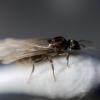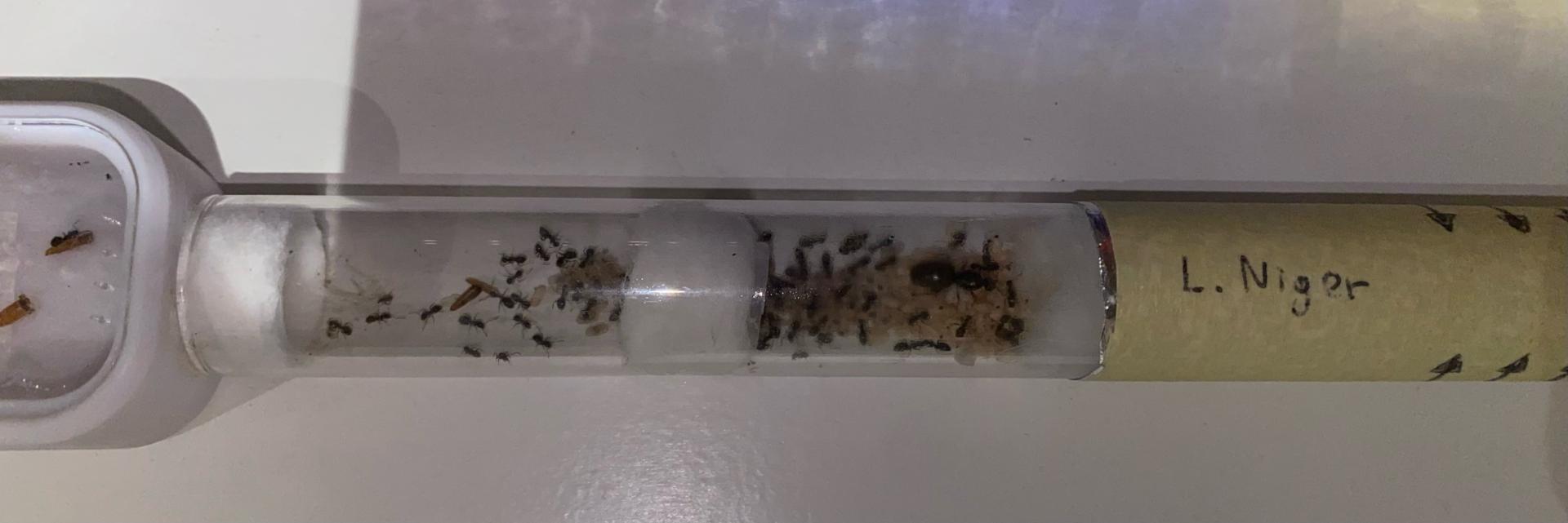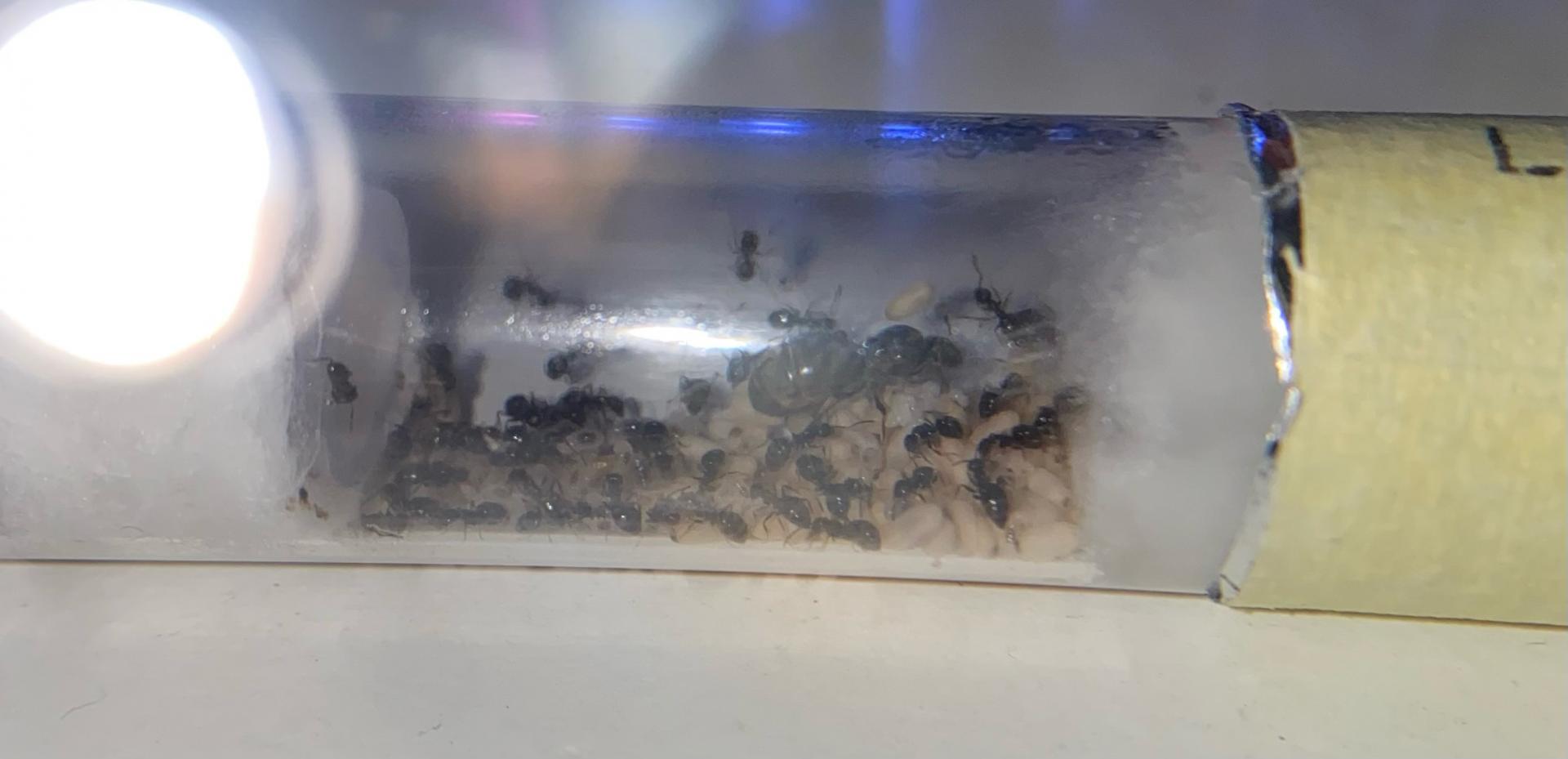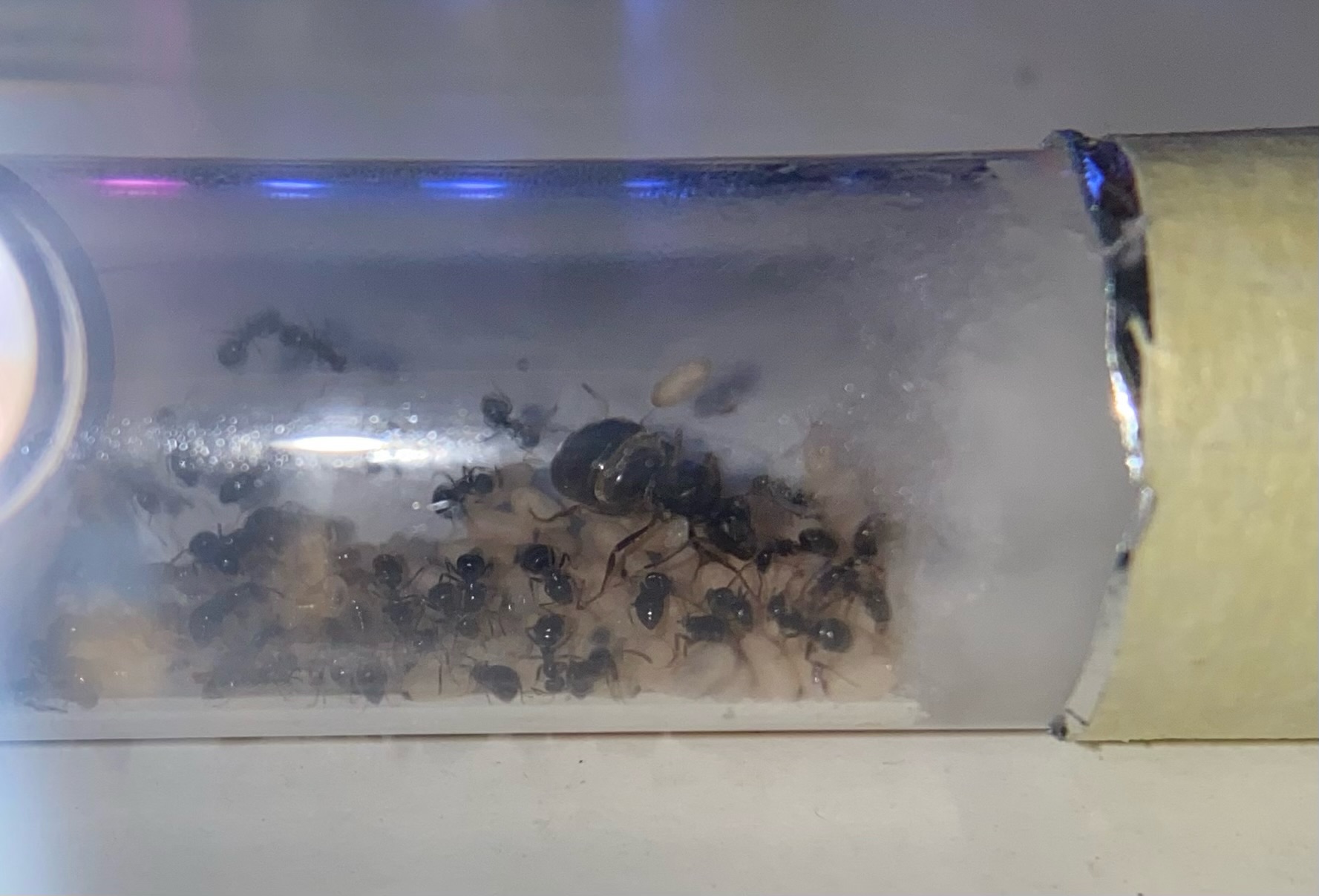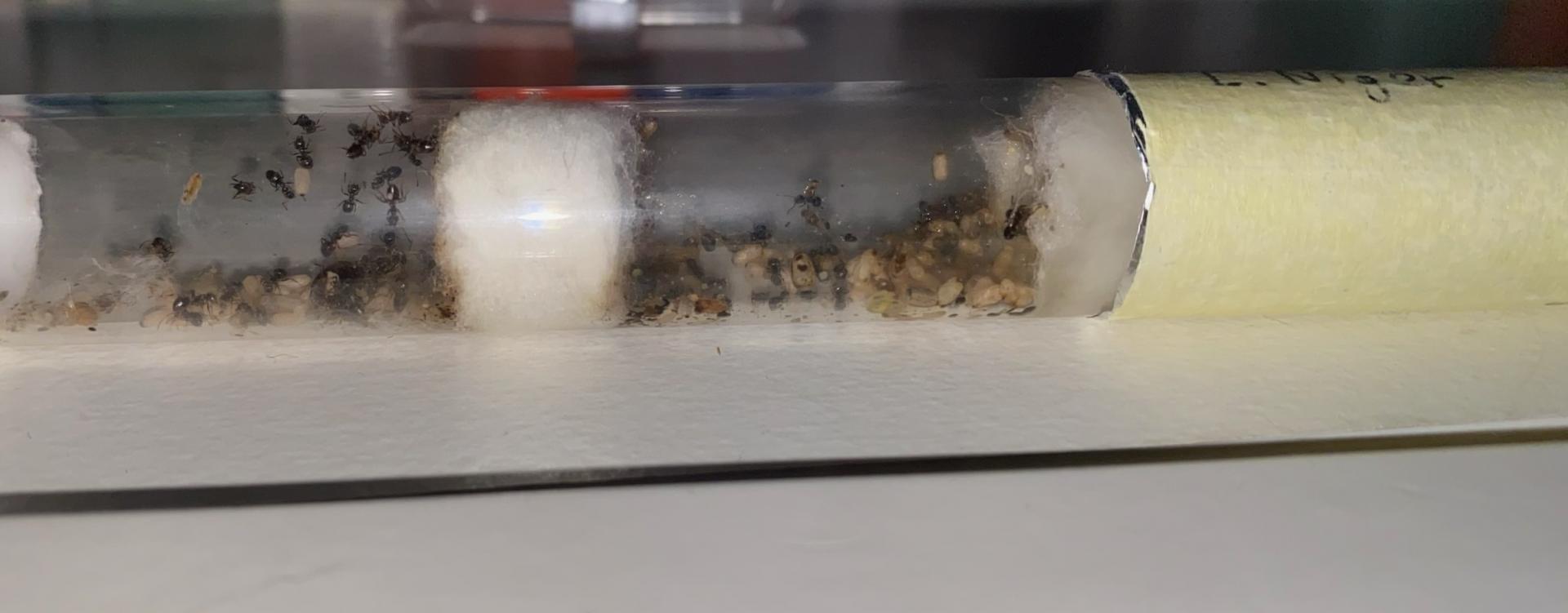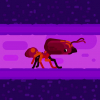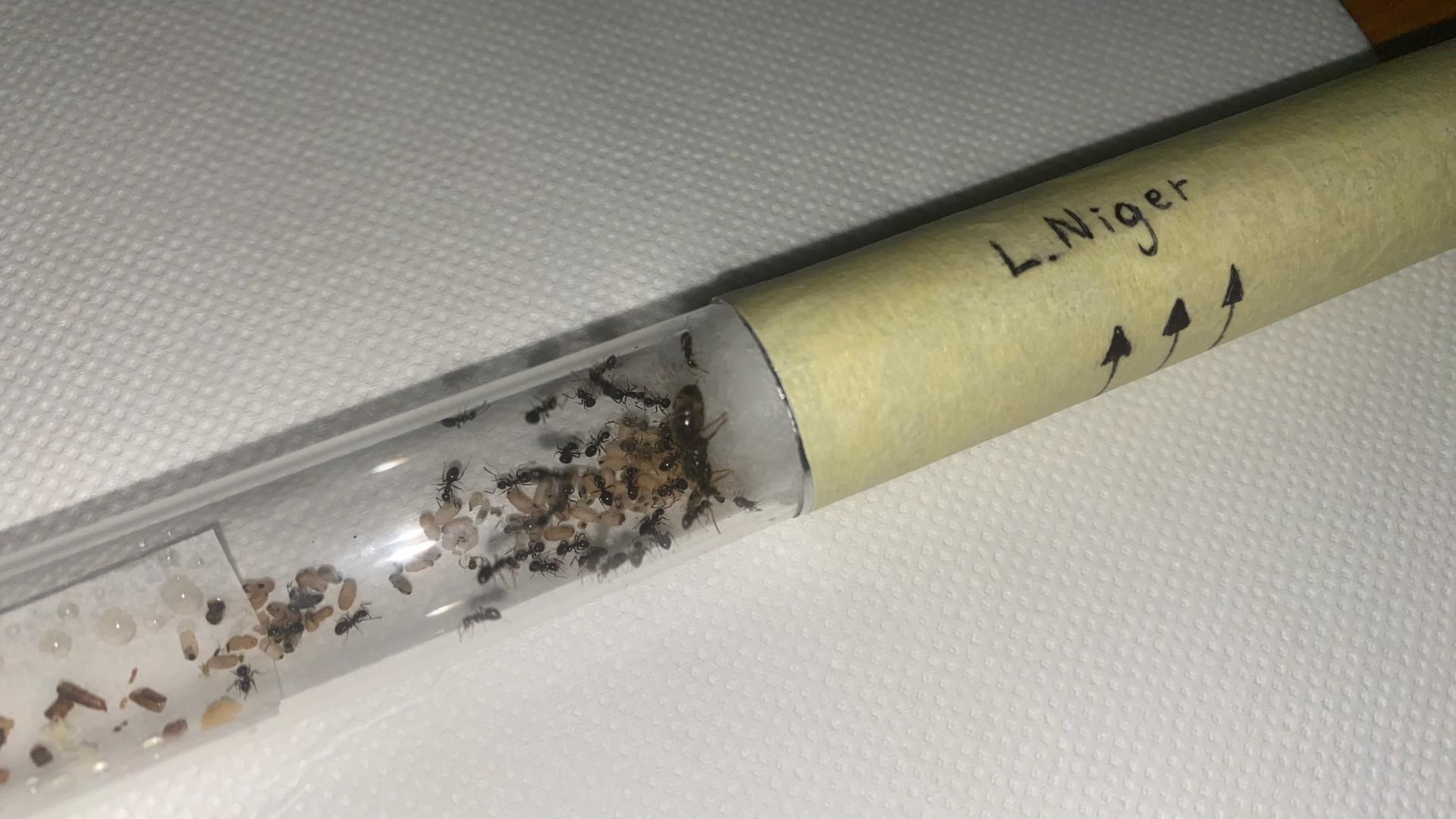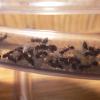Hi all!
I've been keeping this (my first) colony of L.Niger for basically 10 months now. Recently I made them a new test tube as the previous one's cotton was starting to get dark and moldy.
I sadly decided to force them into their new home after basically a week of waiting and everything was looking nice and perfect for a while after that. And, in my enthusiasm, I failed to notice all the condensation that formed on the "deepest" section of my test tube.
Last week I had to go on a little trip so I fed my colony abundantly and I left home on the 3rd.
Yesterday I finally got home and a terrifying sight was awaiting me.
As you all can see there is now a lot of water on the second portion of the tube, the brood is all scattered, the queen retreated to the dryer section of the nest, some pupae seem to be definitely too wet and it seems like one portion of the extremely wet cotton is covered in ant excrement. I'm afraid some of the pupare are already rotting.
What should I do now? I'm afraid relocating the colony again this quickly could cause too much stress and kill the queen but it's also clear that if left in there the entire colony won't last long.
Thank you all in advance for your attention and sorry again for the quality of my pictures and my lack of experience.


